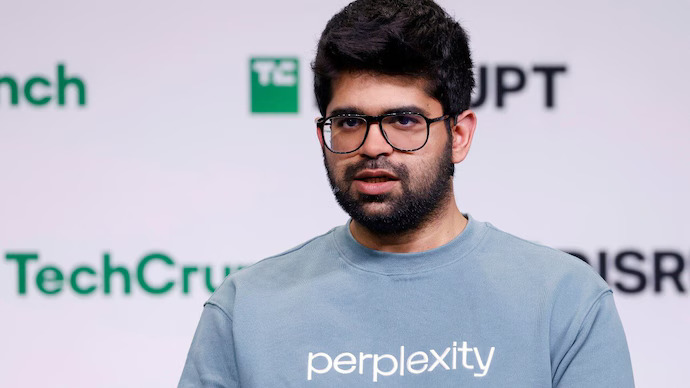- Home
- Technology
- Perplexity CEO Aravind Srinivas Says YouTube and Google Maps Are ‘Impossible to Beat’
Perplexity CEO Aravind Srinivas Says YouTube and Google Maps Are ‘Impossible to Beat’
While India champions local tech alternatives, Perplexity’s Aravind Srinivas acknowledges the unmatched dominance of Google’s YouTube and Maps — calling them “networks, not products.”

In the midst of India’s growing campaign to promote ‘Swadeshi’ or Made-in-India digital alternatives, Perplexity CEO Aravind Srinivas has weighed in on the long-standing debate over whether Google’s powerful ecosystem can truly be disrupted.
The Indian-origin AI entrepreneur, who leads the rising startup Perplexity AI, shared his thoughts on X (formerly Twitter), responding to a post that questioned if any startup could rival Google’s suite of services including Gmail, YouTube, Maps, Drive, Photos, and Chrome. Srinivas’ answer was blunt and realistic: “YouTube and Maps are the hardest. Maybe even impossible. The rest are hard but doable.”
His comments highlight the structural strength of Google’s two most entrenched platforms. YouTube’s dominance stems from its massive base of user-generated content, creator networks, and an advanced recommendation system that keeps audiences deeply engaged. Meanwhile, Google Maps has evolved through years of refining vast geospatial datasets, real-time updates, and user-driven data creating a formidable advantage that few can match.
When a user responded that “YouTube and Maps are not products, they are networks,” Srinivas replied, “Accurate.” His observation underscores how these platforms have transcended traditional software boundaries to become infrastructure-level networks built on years of collective data and participation.
Despite acknowledging these challenges, Srinivas remains committed to disrupting Google’s monopoly in other domains particularly in AI-powered search and information discovery. “Internet is too important to be left in Google’s hands,” he wrote in another post, reaffirming his belief in open competition.
His remarks come at a time when the Indian government is renewing efforts to encourage homegrown digital ecosystems. Apps like Zoho and Mapmy India’s Mappls are increasingly gaining traction as India seeks technological self-reliance. In response to Srinivas’ statement, MapmyIndia’s official handle posted: “He is so correct but we’d like to let him know that @mappls @MapmyIndia has been building maps since 1995, down to house-number-level detail something even global tech giants haven’t easily replicated.”
While challenging YouTube and Google Maps may remain an uphill task, Srinivas’ vision and India’s broader Swadeshi push reflect a growing determination to ensure that the internet’s future is not defined by a single global gatekeeper.



